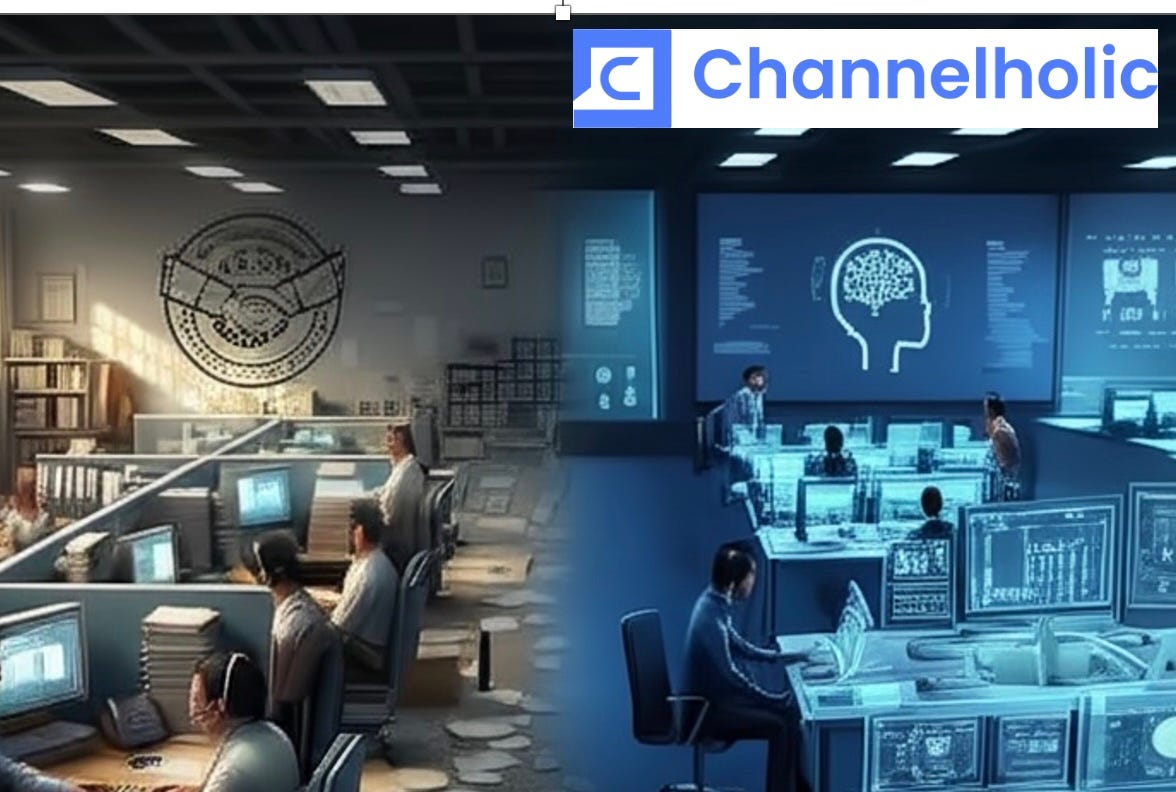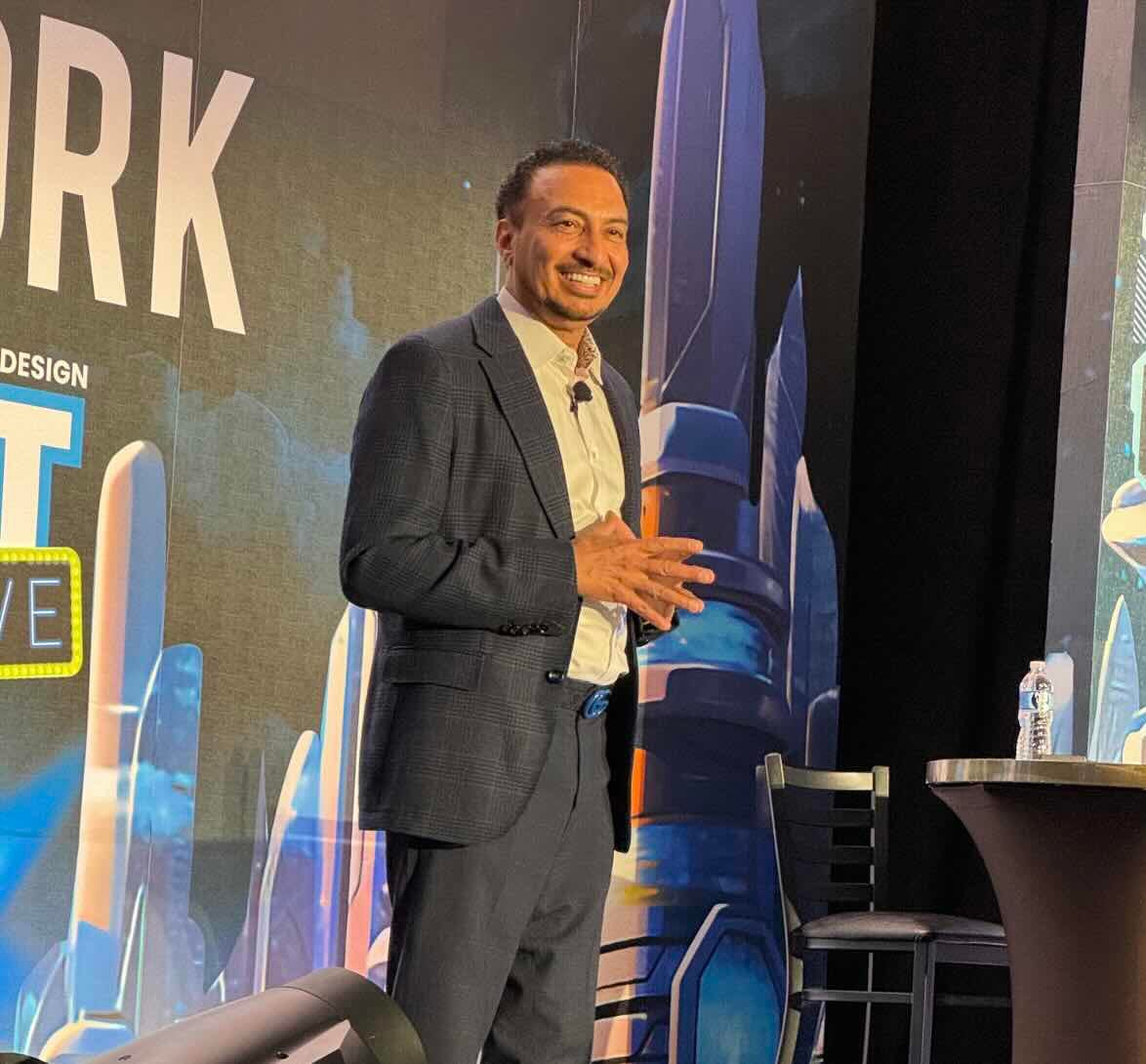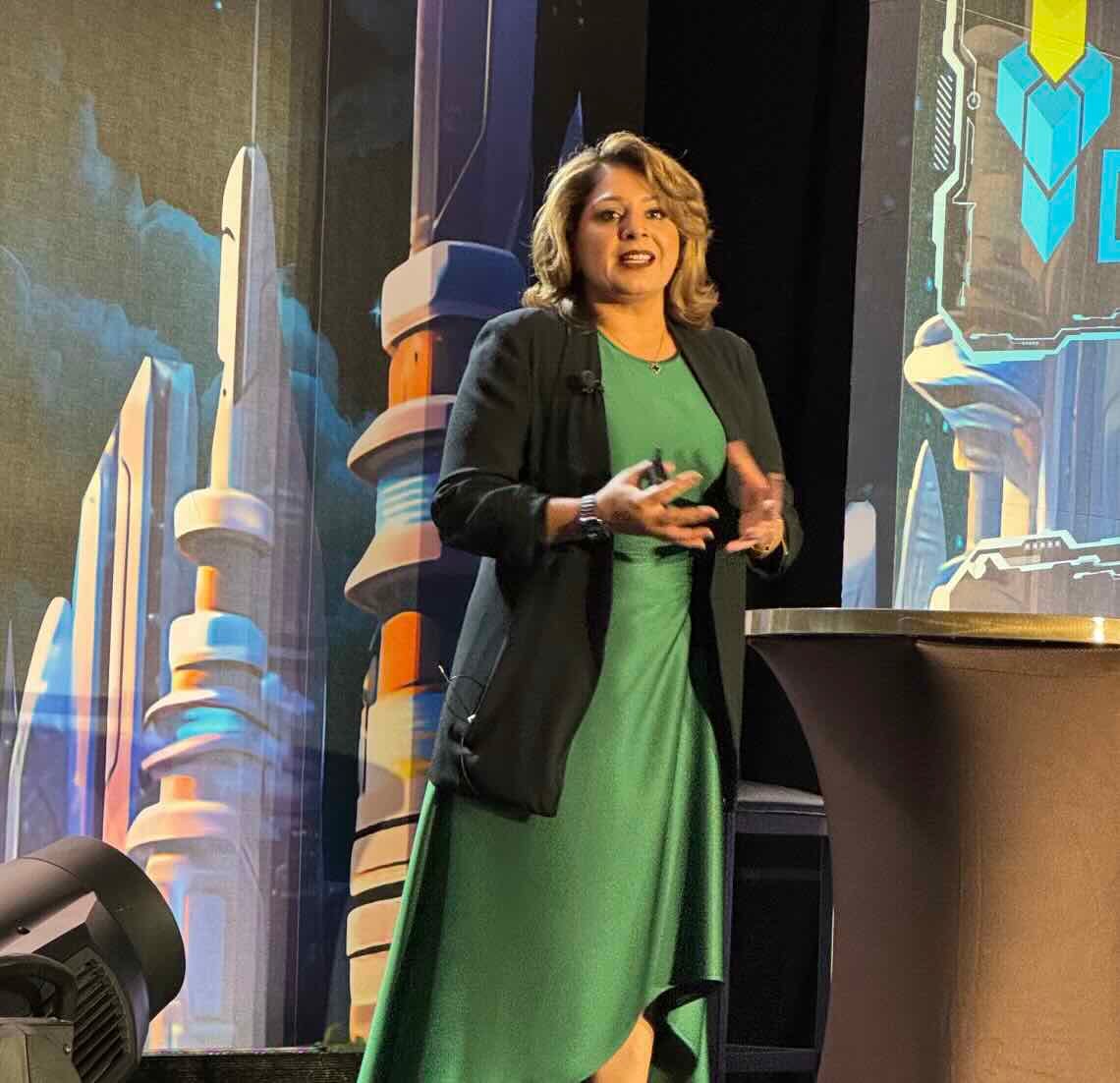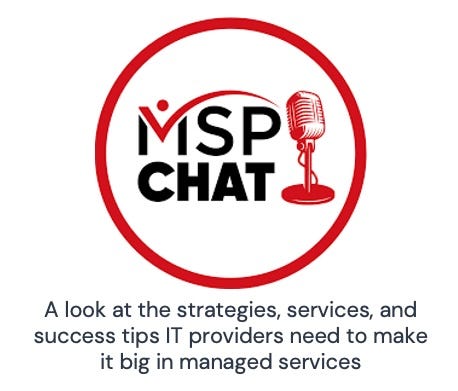How a “People Company” is Going AI
Tech labor outsourcer IT By Design is planning for a future in which MSPs need a lot less tech labor. Plus: inforcer has an AI plan too and Moovila’s using pre-LLM AI to do things LLMs can’t.
I wrote at length recently about Pax8’s plan for navigating an approaching future in which agentic AI has changed what SMBs want from MSPs and therefore what MSPs need from marketplaces.
Pax8 is preparing for that distant yet disruptive day now by re-engineering its platform to support a new generation of heavily—sometimes entirely—automated solutions powered by a seamlessly woven mix of agents, applications, and outside services. It’s an ambitious, demanding undertaking that will undoubtedly require a few years’ effort. But when it’s finished, Pax8 will essentially be a more modern, powerful, AI-ready version of what it is today: a cloud marketplace.
Want some real disruption? Put yourself in the shoes of IT By Design, which has grown to over 600 employees in five locations helping MSPs boost profits and exit value by offshoring help desk and other tasks to skilled yet affordable workers in India and the Philippines. What becomes of a self-described “people company” when agentic AI is doing something like 80% of the managed services labor that people do today?
IT By Design’s CEO, Sunny Kaila, has been pondering that question for a good couple of years now, and he shared his answer last week at the company’s Build IT Live event in Jersey City, N.J. Interestingly enough, his starting point was the exact same concept Pax8 is building around.
“The future has a new name,” Kaila (pictured) told his audience during a Monday keynote. “What’s next is moving from managed service providers to managed intelligence providers.”
MSPs, he explained, rely on humans to serve customers. MIPs, by contrast, use agents to get work done and task humans with supervising the agents. “The pricing and packaging depend on the outcome the customer is expecting, and you’re basically charging them a monthly fee to deliver that outcome,” Kaila said during an interview at the show.
It’s a vision that echoes Pax8’s thinking about where AI’s taking us, and Microsoft’s as well. IT By Design’s strategy for remaining relevant to MSPs when that vision comes to life contains two core components. First, in a process underway for the last 18 months, the company’s been re-training its offshore labor pool to give MSPs what Kaila says they most need now to get in on the AI opportunity: employees with the skills to design and deliver AI-powered automation.
“We are going to meet that demand,” Kaila says, and “future-proof” its staffing business along the way. In addition, though, the company will open an entirely new revenue stream guiding MSPs through the MIP evolution via an offering it unveiled at last week’s show called AI By Design. You’ll find the details here, but suffice it to say for now that it’s a sweeping set of services designed to help MSPs become trusted, expert sources of high-impact, high-profit, highly effective agentic solutions.
Completing that journey will be akin to climbing a mountain, Kaila concedes, but IT providers have climbed other mountains before, including the switch from break-fix to recurring revenue and the rise of cloud computing. With a little help from an “AI sherpa,” he insists, they can climb this one as well despite its height.
Kaila knows about climbing mountains too. He summited Everest in April.
Leadership is still work for people
If Sunny Kaila’s right that the future of teamwork in managed services involves a side-by-side mix of people and agents, someone’s going to have to make sure they all get along with one another. And that, his wife Kam Kaila observed during a Build IT Live keynote of her own, is a job for leaders.
Indeed, Kaila (pictured), IT By Design’s president, believes leadership will be more important than ever in the next few years. “We have to transform our businesses,” she says. “Well, what happens when there’s change? People get scared. And those scary times are when our leaders have to step up.”
She’s talking human leaders too. AI may be phenomenally good at analyzing team performance, but it’s a poor substitute for the TLC only a person can provide when an employee is having a really bad day.
“Leadership is one of those things that you can’t give over to a chatbot,” Kaila says. “So as long as we have people in our industry, our leaders will need to be able to support them.”
Hence the other new service IT By Design introduced last week. Called LeadershipOS, it’s a collection of tools, templates, and training materials MSPs can use to operationalize insights provided by Team GPS, the employee engagement system IT By Design introduced four years ago, in consistent and predictable ways.
“Leadership is not an accident. It’s a repeatable process,” Kaila says. “It needs to be standardized. It needs to be documented. You need to have SOPs around it.” Too few MSPs know how to do any of that, though, she continues, or bother to spend the time even if they do.
“We invest a lot in technology,” Kaila says. “We have all of these different technology vendors whom we love, but we don’t necessarily invest enough in our leadership.”
And we’ll stumble along the path from MSP to MIP if we leave it that way, she warns.
From the Channelholic book club
As long as we’re talking AI roadmaps for MSPs, it’s worth mentioning that I read a pretty good one on the flight home to Seattle from Build IT Live. Called From Prompt to Profit: The MSP Playbook for AI-Driven Client Success, it’s by Art Gross, CEO of Breach Secure Now, a security vendor that has added AI awareness and training services, and it’s packed with specific, actionable advice.
Sunny Kaila has a new book too, named Borderless Life: How to Build Your Ever-Expanding Future. It’s his third book in three years, following The Secret to Building Winning Global Teams: How to Leverage Offshore Talent to Exponentially Increase Profitability and Valuation and Talentpreneurship: How to Build and Grow a Healthy Business, Transform the People around You, and Live the Life of Your Dreams.
Kaila plans to write a book a year indefinitely, by the way. Remember that he just climbed Everest before predicting whether or not he can pull that off.
inforcer’s thinking AI as a service
Jake Webber-Cadby, inforcer’s vice president of global sales, was still getting up to speed on AI By Design when we spoke on the sidelines of Build IT Live last week, but the parallels between his employer’s thinking and the Kailas’ are striking just the same.
Both companies are pre-ChatGPT success stories working to remain relevant as AI realizes its manifest destiny to be technology’s next big thing. IT By Design’s strategy for that transition is to pivot from providing tech labor outsourcing to providing AI expertise outsourcing and executive coaching. inforcer’s plan is to turn a Microsoft 365 management platform into an enablement resource for MSPs adding “AI as a service” to their offerings.
Both companies, meanwhile, see the voyage to AI as a multi-step process that begins with MSPs readying themselves and their clients for AI’s security, governance, and data demands. AI By Design is how the Kailas plan to help with that task. An AI readiness tool currently in development is how inforcer aims to do the same. When the system reaches market within the next few months it will arm users to show clients where they deviate from best practices, and how to correct those lapses.
“A lot of SMBs don’t have the security foundations in place to be able to consume AI in a secure way,” Webber-Cadby says. Laying in those foundations, he adds, is both a necessary precondition to leveraging AI’s power and a rich source of project revenue.
Once they have the fundamentals in place, AI By Design subscribers will get tutoring on the finer points of designing and delivering agentic solutions. inforcer (in a faint echo of Pax8’s mostly forthcoming agent marketplace) will provide access to an agent library stocked by its partners.
“Ultimately, it’s going to be the MSP’s responsibility to build their IP in terms of the agents, because they’re the ones who know their customers the best,” Webber-Cadby says. “What we will do, however, is give our partners a community where they can feed off of what other MSPs are building.”
AI is a new focus for inforcer, which has attracted some 750 partners, mostly outside North America, since its founding in 2022 as a maker of multi-tenant security policy management software for the Microsoft cloud.
“Microsoft 365 isn’t built with the MSP in mind,” Webber-Cadby says. “If they’re managing a hundred end clients, they have a hundred end portals that they have to manage. With inforcer, they have to manage one portal.”
One portal that, entirely by design, does one important thing, he continues. Unlike managed software platform providers like ConnectWise, Kaseya, and N-able, inforcer’s product team thinks very deeply about one use case and one only.
“This is all we do and it’s all we’ve thought about for the past three years,” Webber-Cadby says. “If we were distracted with lots of different things going on, then I don’t think we’d be innovating at the pace that we’re innovating at the moment.”
The money the company has at its disposal hasn’t hurt either. inforcer closed a $19 million Series A round last October and a $35 million Series B round last month. Adding employees and partners in the U.S. is a priority use for that capital.
AI excels at project management, says Moovila. GenAI sucks.
Allow me to begin this piece with an irony: I just asked ChatGPT to teach me the role of vertices and edges in discrete math. You’ll understand both why I asked that question and what makes the place I asked it ironic in a moment.
First, some back story. A couple of weeks ago, I mentioned in passing that mega MSP Logically has doubled the output of its project managers using MSP-specific project management software from a vendor named Moovila. It had been a while since I’d spoken with anyone at Moovila, so the comment got me wondering if advances we’ve seen in generative AI since that last conversation were responsible for Logically’s results.
Answer: not really. Yes, today’s LLMs are way better at a lot of things than the models we all marveled at two years ago, says Mike Psenka (pictured), Moovila’s CEO, but “they sort of suck at graph data and the error rate is terrible.”
Which brings us to vertices and edges. Vertices, I now know, are points on a data graph. Edges connect them. Unlike the mostly linear tasks that genAI excels at (like answering questions about vertices and graphs—see the irony here now?), project management is heaped with dependencies that can impact multiple variables in complicated ways. Vertices, edges, and graphs are the best way to model those dependencies, according to Psenka, and LLMs (still) aren’t nearly accurate enough in that environment to be useful.
“Anything other than 99.999 is going to contaminate the rest of the graph,” Psenka says, leading to waste, delays, and unhappy clients. As a result, Moovila relies on pre-genAI technology designed in house that utilizes discrete math principles and directed acyclic graph structures to monitor dependencies, assess resource requirements, anticipate timing conflicts, and propose remedies.
Not that Moovila isn’t using generative AI to enhance its platform and partner experience. LLMs will help power an interactive learning management system and best practice hub the company has coming soon. Moovila’s using agentic AI on a limited basis as well to identify project issues. But it’s intentionally opted not to make that technology fully autonomous.
“We could have flipped the switch to say, ‘we’re going to deterministically update these project dates and reschedule people,’” Psenka says. “People don’t want to do that yet culturally.” Moovila, therefore, will continue using “supervised AI” that mixes agents with human input going forward.
“The future around larger, more complex processes is a hybrid model,” Psenka says.
(One last note: I intentionally opted not to explain what “discrete math principles and directed acyclic graph structures” are a few moments ago. If you’re curious to learn, I suggest you ask ChatGPT.)
Meanwhile, over at the podcast …
I’ve got a post about changing trends in partner programs coming soon. Nothing in it, I promise you, will be more insightful than what Ryan Morris shared on the latest episode of MSP Chat, the podcast I co-host. Check it out here.
Also worth noting
Big week for CrowdStrike, which has new agentic AI security functionality, a new threat intel tool, a new AI-powered threat detection solution, a new AI risk assessment product, and a new AI SecOps offering.
Palo Alto has a new attack surface posture management solution for cloud apps.
Speaking of posture management, Abnormal AI has added Microsoft 365 support to its Security Posture Management product.
Arctic Wolf’s Aurora Platform now integrates with Microsoft, Oracle, OneLogin, and future Palo Alto unit CyberArk.
SaaS Protect, from LastPass, is designed to help SMBs combat shadow IT and shadow AI.
ThreatImpactIQ, from Liongard, prioritizes risks based on business impact, industry frameworks like CIS, and continuous threat intelligence.
WatchGuard has a new line of Tabletop Series firewalls tailored to the wishes of MSPs who serve SMBs.
SentinelOne has acquired Prompt Security in a bid to up its AI and agentic AI security game.
Speaking of agents, SOCRadar is now putting them to work in threat intelligence.
Veeam now offers full agentless hypervisor backup for Scale’s edge-first computing platform.
Intermedia has added Microsoft 365 email to its Intelligent Archiving solution.
The newest functionality from Infoblox is designed to predict and preempt AI-driven attacks.
Speaking of preemptive security solutions, Reveal Security has just launched one for identity security across SaaS, cloud, and custom applications.
Flashpoint’s new summarization tools for search and investigations harness the power of generative AI to sift through mountains of data for the handful of insights that matter.
ConnectSecure now has an outsourced professional services unit and training boot camp for its MSP partners.
Delinea’s now using AI to streamline access decisions, among other things.
Cyware is the latest vendor to add an MCP server.
AI-powered data security vendor Cohesity has a brand-new partner program.
ID security vendor BeyondTrust has launched a security research team and a new solution for preventing unmanaged business secrets from becoming your newest attack surface.
IDC, CONTEXT, and the Global Technology Distribution Council have agreed to create a super-pool of technology sell-through data.
UPSTACK has acquired Avail Partners, a Seattle-based consultancy for midmarket businesses.
Sumesh Rahavendra is the new chief business officer at JumpCloud.
Jasmina Muller of Titan Cloud Storage and Kelly Danziger of Informa Connect are the new president and vice president, respectively, of non-profit Tech4Change. There’s a new board too.








